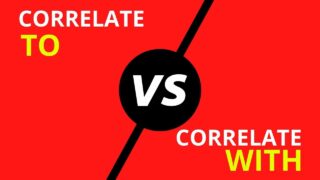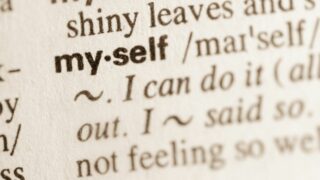“Which” is one of those tricky English words that can be used in a lot of different ways depending on where it appears in a sentence and what other words it is paired up with. This means that it can even give native English speakers some problems! One way you might see it used is …
Grammar
“Correlate” is a verb you will often encounter while reading about scientific research. It indicates that two things are related. You might see people use both “correlate with” and “correlate to.” How do you know which one to use? This is another one of those usages that is not consistent even among native speakers. In …
Calling someone on the telephone has changed a lot over the years since this technology was first introduced over 100 years ago. In fact, where we once had frequently-called phone numbers memorized, these days, we often don’t know the numbers of our family members or best friends since we usually just touch their name in …
If you’re creating a resume or talking to someone about your work experience, either in an interview or informally, you will probably use the phrases “experience in” or “experience with.” But which one of those prepositions should you use when? The good news is that in most cases, you aren’t going to cause any great …
Beauty is said to be the ultimate motivator behind most choices. For instance, we like to be surrounded by beautiful scenery when we walk in the woods, just like we often want our appearance to please others. In other words, what would the world be if we could not find anything beautiful or captivating to …
When you are writing and you want to add a little extra information in the middle of a sentence, you might put that information in parentheses. But what happens if you are quoting someone else? In that case, if you put the information in parentheses, it might look like these are the words of the …
“The boy spent a lot of time and effort fixing the boy’s toy car.” Pronouns inherently exist for a reason: To avoid grammatically correct yet awkwardly redundant sentences like the one above. However, like any other device whose job is to make our life easier and more meaningful, pronouns also serve other purposes in communication. …
Writing the closing of a letter can be tricky. You have to find the right words for the occasion, which means choosing a phrase with the right level of formality. If you choose wrongly, you could sound either overfamiliar or unnecessarily cold. As if this isn’t enough to worry about, then there’s that ever-present issue …
Using a comma after a particular word is guided by punctuation rules that are fundamentally and arbitrarily based on syntax and stylistics. Put simply, a particular word does not necessarily determine the comma placement, but instead, it is either the sentence structure or the writing style. In our article today, we cover the comma-placement subtleties …









